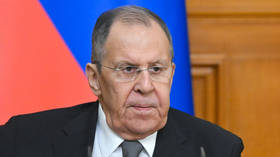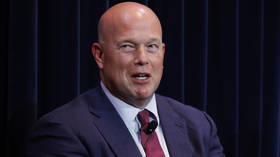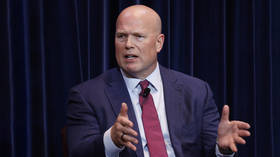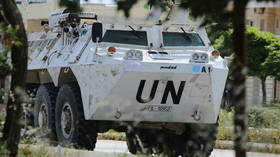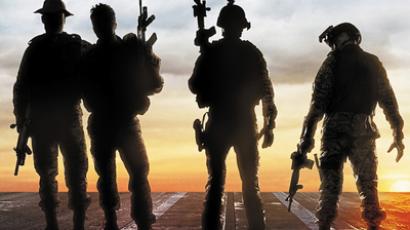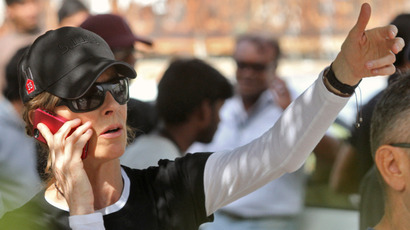Panetta admits to spilling secret bin Laden info to Hollywood scriptwriter
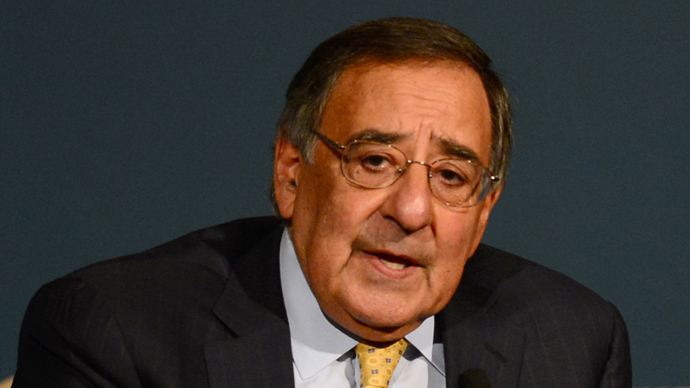
Former CIA Director Leon Panetta claims he accidentally revealed secret information to ‘Zero Dark Thirty’ screenwriter Mark Boal during a speech at agency headquarters following the killing of Osama bin Laden, newly declassified documents show.
While addressing an audience at CIA headquarters to mark the successful raid in Abbottabad, Pakistan that killed long-sought Al-Qaeda leader Osama bin Laden in May 2011, Panetta revealed the name of the ground commander of the US Special Forces unit that carried out the operation. Panetta told AP through a spokesman that he did not know Boal was in the room at the time.
"I had no idea that individual was in the audience," Panetta said in a statement. "To this day, I wouldn't know him if he walked into the room."
Panetta spokesman Jeremy Bash said the former CIA director assumed that everyone present at the time of the speech had proper clearance for such a discussion.
Judicial Watch filed the original Freedom of Information Act request on June 21, 2013, which on Tuesday yielded 200 pages of documents concerning the CIA’s internal investigation of its part in the acclaimed 2012 film on the bin Laden raid.
The film became the subject of heated debate in Washington and beyond about how much access major Hollywood filmmakers had to sensitive, classified information about such a paramount matter. Some criticized the film for glorifying torture, or “enhanced interrogation techniques,” while others said the abusive tactics shown in the film did not, in fact, lead to the finding of bin Laden.
The issue became the subject of inquiry for the Senate Intelligence Committee, as the film was in the running for major awards. Yet the committee’s investigation ended in February 2013. An anonymous source close to the matter told Reuters that the conclusion was that the CIA did not tell the filmmakers that "enhanced interrogations" led to the capturing of bin Laden, but instead merely helped develop characters in the film.
Conservative, government-transparency advocacy group Judicial Watch reported that over 90 lines of Panetta’s speech - made on June 24, 2011 during an agency awards ceremony marking the raid - were redacted in Tuesday’s release.
“You have made me proud of the CIA family. And you have made me proud as an Italian to know that bin Laden sleeps with the fishes,” Panetta said at the end of his address.
The documents show that the CIA Office of Security (OS) concluded in October 2012 that “the Agency’s Security policy and administrative procedures were not followed in allowing Mr. Boal, a member of the media, access to the classified Bin Ladin Operation Award Ceremony.”
Judicial Watch points out that in addition to Boal’s presence at the CIA ceremony, the filmmakers were involved in meetings and communications with government agencies during the making of “Zero Dark Thirty,” as revealed in August 2012 by another information request by the advocacy group.
And according to a June 2011 email from Benjamin Rhodes, deputy national security advisor for strategic communications, the Obama administration was “trying to have visibility into the UBL (Usama bin Laden) projects and this is likely a high profile one.”
CIA spokesman Dean Boyd told AP that the agency has since "overhauled its procedures for interaction with the entertainment industry after an extensive internal review." The CIA now has "a centralized record-keeping system for entertainment industry requests and, earlier this year, issued detailed guidance on contact with the industry and support for entertainment-related projects," in order to shield classified material, he said.
Boal has yet to comment on the matter, AP reported.


